Before kickoff on gameday, protesters hold ‘funeral’ for free speech at Indiana University
A dozen protesters staged a funeral-themed demonstration at Sample Gates on Saturday, criticizing IU’s leadership and state policy changes they say restrict free speech. The event was held ahead of the IU–Wisconsin game.
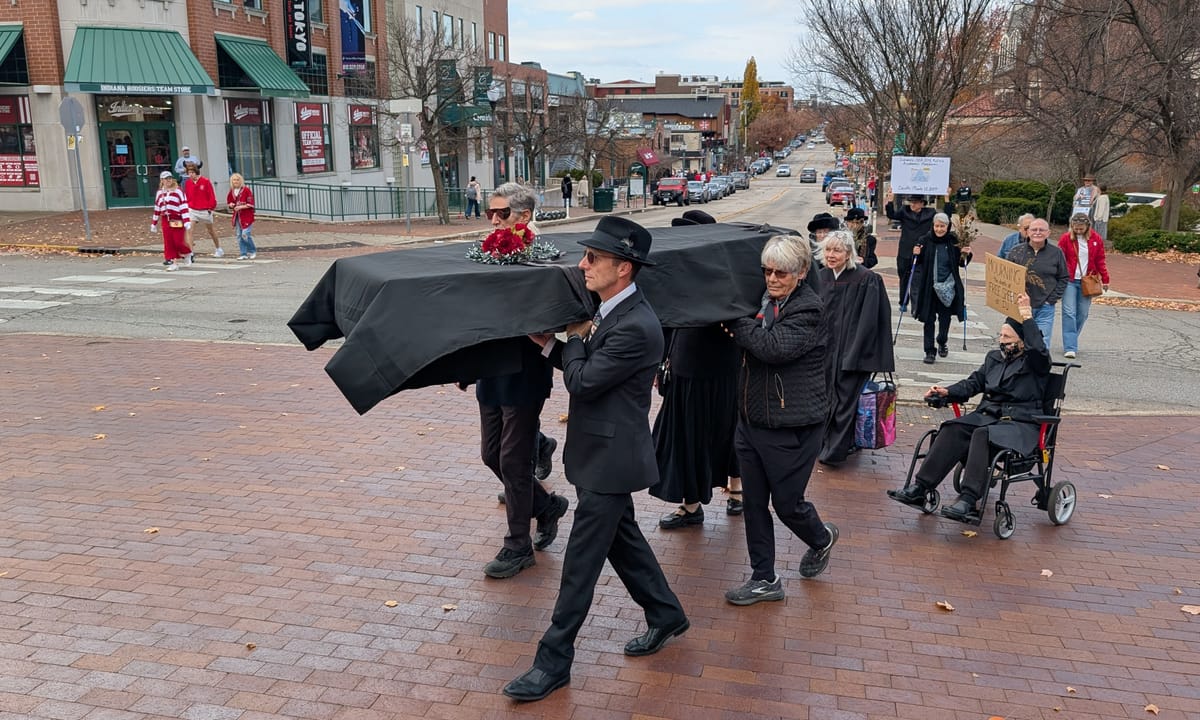
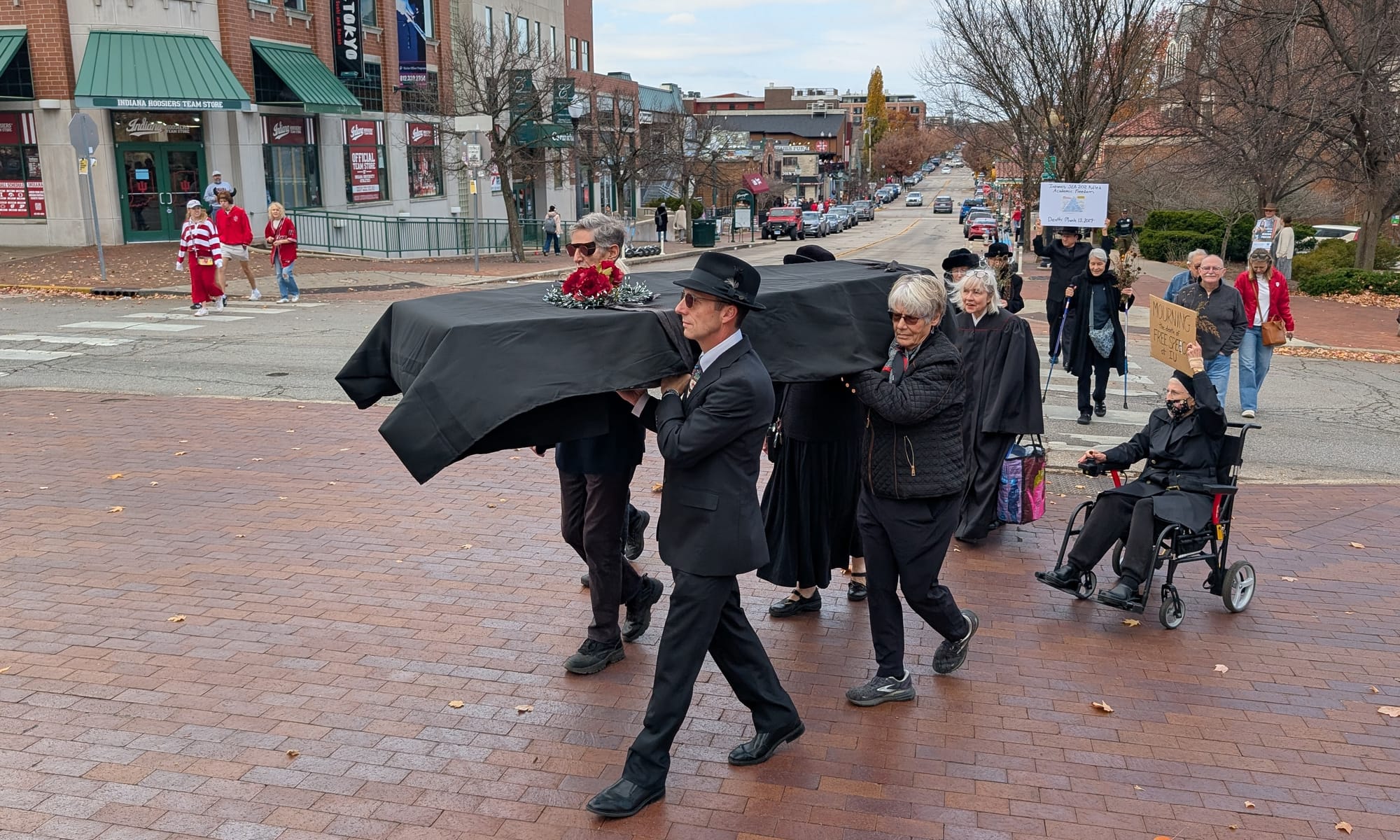

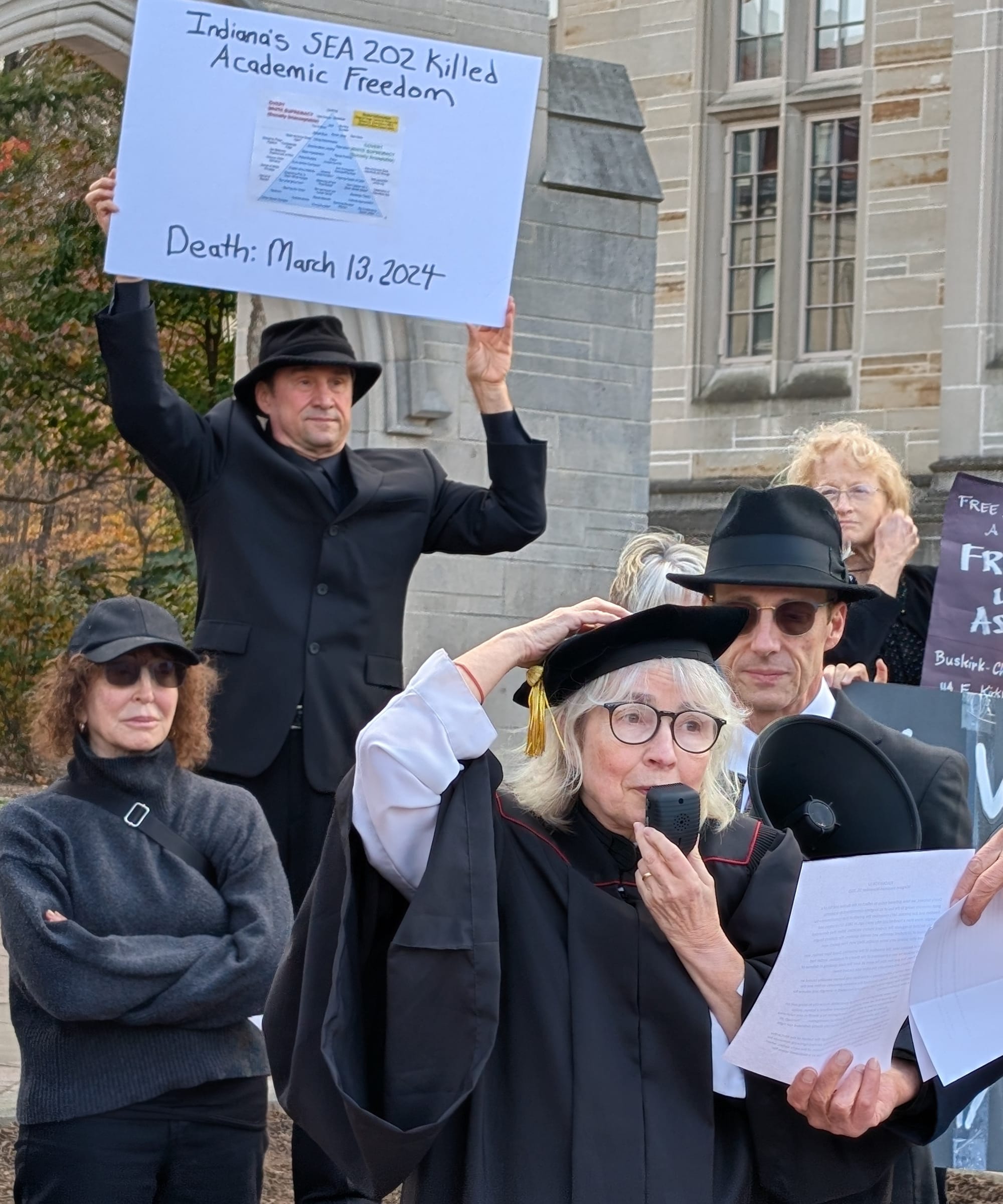
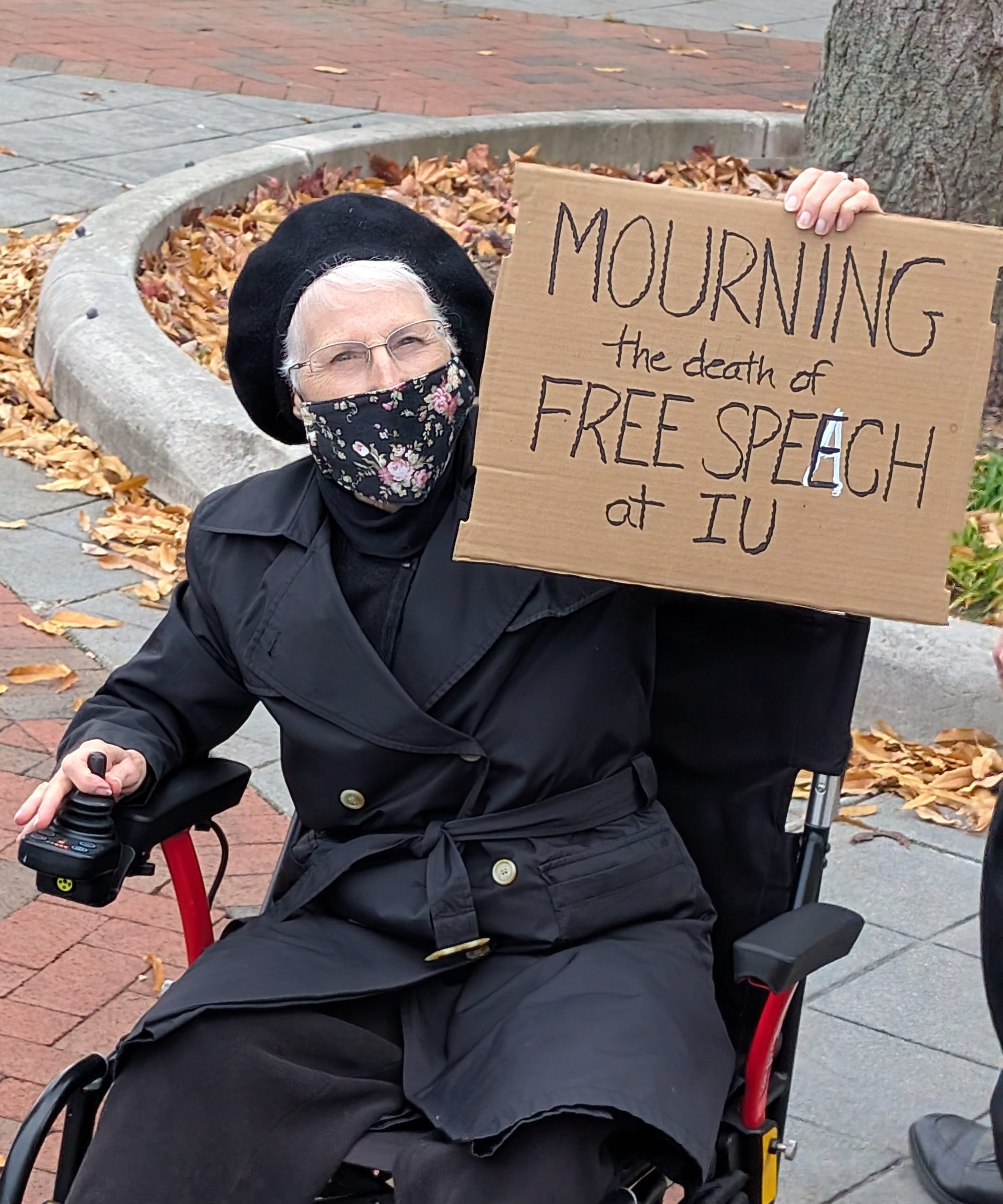
Left: Bloomington Jeff Singleton holds a sign that says, “Indiana’s SEA 202 killed academic freedom” Middle: Peg Hausman delivers remarks at Sample Gates, ticking through a list of grievances over free speech. Right: Bloomington resident Lynn Struve holds a sign that reads “Mourning the death of free speech at IU” (Dave Askins, Nov. 15, 2025)
On Saturday morning, about an hour before the kickoff of the IU-Wisconsin football game, Sample Gates on the eastern edge of Indiana University’s Bloomington campus, was busy with typical game day activity.
Groups of out-of-town fans took photos against the iconic backdrop, current students moved north towards the stadium and, at one point, a marriage proposal was made.
Not typical for pre-game festivities at the head of Kirkwood Avenue was a demonstration by a dozen people against various policies of Indiana University and the state legislature in the form of a funeral procession, with a casket, mourning the death of free speech on campus.
A banner carried by the demonstrators read “Why wreck the value of an IU diploma?”
In her remarks, delivered through a megaphone, Peg Hausman, a former IU staff member, ticked through a list of grievances that she said pointed to the demise of free expression on the campus. Hausman was critical of Indiana University president Pamela Whitten, asserting that she was appointed by a board of trustees made up of political appointees and that the board chose her against the recommendations of the search committee.
Following the outbreak of war in Gaza, Hausman said Whitten’s administration made a series of decisions that reflected a pattern of restricting speech connected to Palestinian advocacy. They included: the suspension of Abdulkader Sinno, faculty advisor to the Palestine Solidarity Committee; the cancellation of an exhibition by Palestinian American alumna and internationally recognized artist Samia Halaby; and overnight changes to IU policy governing Dunn Meadow as a venue for protest.
Hausman also accused the administration of interfering with campus media, saying that Whitten’s leadership forcibly restructured the IDS and WFIU, which Hausman described as an effort to diminish independent journalism on campus.
Hausman also said that Whitten had worked with the legislature, governor, and the board of trustees to advance policies that threaten academic freedom, faculty tenure, and shared governance. Hausman specifically pointed to the 2024 passage of Senate Enrolled Act 202 (SEA 202), which has already been the basis for a complaint against a professor, Benjamin Robinson, and a complaint against lecturer, Jessica Adams, who was removed from the classroom after a complaint.
SEA 202 allows students to report teachers who they believe aren’t promoting free inquiry, expression and intellectual diversity.
One of the demonstrators, Jeff Singleton, carried a sign with the pyramid that Adams displayed on a slide as part of a lesson she taught her class, which resulted in a complaint and her removal from the classroom. The pyramid included the slogan “Make America Great Again” categorized under “covert white supremacy.”
Singleton described himself as a longtime Bloomington resident. He was aware of the general issue, but said he “didn’t realize it was this bad” until he read a media account of Adams’s removal. That was enough to make him change his regular Saturday plans with his hiking group—McCormick’s Creek had been on the docket for this week.
The demonstration didn’t draw much reaction from gameday revelers, but a few did offer a shouted standard greeting for the upcoming athletic contest: “Go IU!” A woman on a bicycle raised her fist in solidarity and shouted, “We’re with you!”
One of the demonstrators, Judy Owens, approached passersby by saying, “In case you’re curious, we’re protesting the death of free speech at IU.” Owens said that people were mostly positive in their reaction, but also said a couple of current students told her that they were not concerned—their own free speech rights had not been infringed.
Owens described herself as a Monroe County Republican, saying “I think that it’s important for other Republicans who have thoughts and brains to be understanding that there’s an open space for people who are not like white nationalists.”
A similar demonstration, also using a funeral theme—focused on what participants described as the death of the rule of law—was held two weeks ago at Switchyard Park.


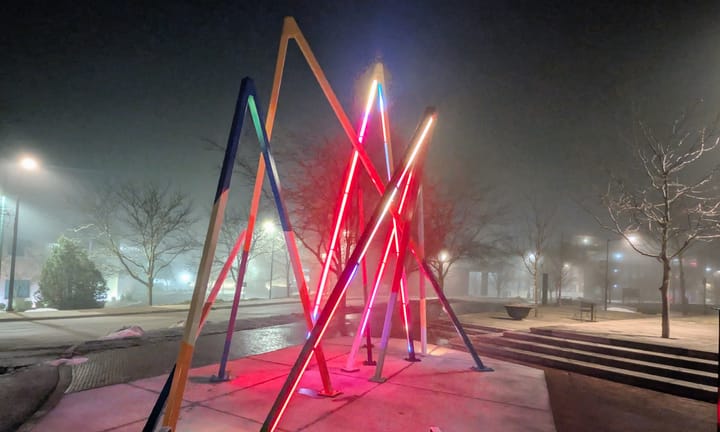

Comments ()